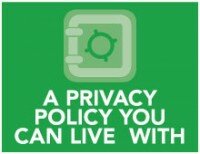1. Member Control
The Internet Credit Union is controlled by its members, who actively participate in setting policies and making decisions. Men and women serving as elected representatives are accountable to the membership. Every member has equal voting rights (i.e., one member, one vote).
2. Autonomy and Independence
We will never seek to gain economically at the expense of our members. We are not interested in growing beyond service to our members or creating products that may get our members into uncontrollable debt. We value our independence and do not seek to be part of some larger credit union.
3. Concern for Community
A community is not just defined by geography. Today, “community” is used to represent a common mindset, affiliation, or any other way in which people identify with each other. This principle speaks to a respect for peers who share common goals, challenges, or opportunities and who choose to work together toward everyone’s success. IAFCU wears its community pride for everyone to see.
IAFCU Ownership Statement
At a credit union, you are not a depositor, a debtor, or a simple customer. You are a member of the cooperative and an owner of the financial institution.
You are a voting voice in the decisions of the credit union. You can attend the membership meetings and participate in the decisions. You can speak directly to the CEO and the directors. You elect your board of directors and may even decide to run for a director position yourself or volunteer on one of its committees.
There is true equality at the Internet Credit Union. Every member benefits from the credit union’s success through better rates on savings, lower rates on loans, fairer fees, and certainly better customer service.
The funds in the credit union come from the local community and return to the local community, not some vault at some corporate office in a far-away metropolis or foreign country. Make your money work for you, your friends and your neighbors. When you access your credit union through either the Internet-door or the front door, you are entering your financial institution, your home.







